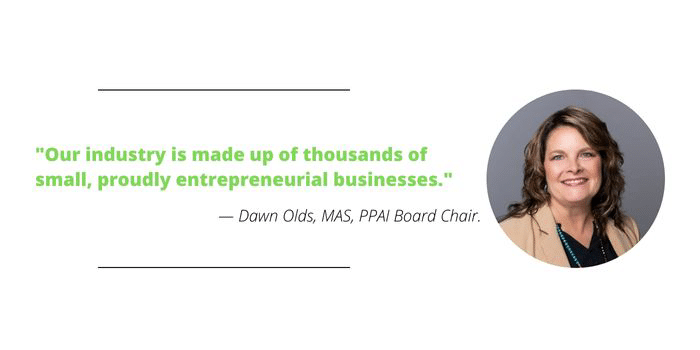This week, PPAI joined a roundtable discussion hosted by the U.S. Small Business Administration to discuss the Department of Labor’s proposed rule on independent contractor classification under the Fair Labor Standards Act and share how it would affect the promo industry.
PPAI has been tracking changes to independent contractor classification for some time and advocating on behalf of the promotional products industry at both the state and federal levels. Working with industry representatives through its Government Relations Advisory Council, the Association believes that should the DoL’s proposed rule be implemented, it would become extremely difficult for thousands of entrepreneurs in the promo industry to maintain their status.

Industry Advocacy
The SBA’s Office of Advocacy held the roundtable to receive feedback on the numbers of small businesses affected and the compliance costs of the rule, and potential regulatory alternatives that would minimize its impact. PPAI Board Chair Dawn Olds, MAS, and PPAI Public Affairs Manager Maurice Norris joined the discuss to educate the SBA on the promotional merchandise market and this rule’s effects on the industry.
- The promotional products industry employs approximately half a million Americans and about 100,000 of them serve in it as salespeople. Of those, by PPAI’s count, roughly 30,000 are independent contractors.
During the roundtable, Olds and Norris explained the role independent contractors play in the promotional products industry and focused on the new test that the DoL has proposed.
- PPAI is seeking particular accommodation for the industry on one factor of the proposed new test: to what extent the independent contractor is integral to the employer’s business.
“Our industry is made up of thousands of small, proudly entrepreneurial businesses, many owned by historically disadvantaged groups,” Olds says, sharing her remarks from the roundtable. “The proposed DoL changes ignore independent contractor precedence in place for well over 50 years in our industry. This precedence has been supported by the IRS. Congressional representatives, who understand economic and personal impact – as a result of PPAI’s advocacy efforts – have correctly refused to make the changes DoL is considering.”
The promotional products industry’s business model relies heavily on independent contractors. For example, small suppliers leverage them as their representatives at the flood of trade shows held across the country during late spring and summer. Olds notes that without this support, small suppliers cannot reach the broader audience and are likely to lose sales to larger companies.
“Diversity-owned businesses who are affiliated with a larger company for financing and back-office outsourcing support may be forced to lose their independence, leave the industry, or build this infrastructure on their own,” Olds says.
She concluded the industry’s remarks at the roundtable by calling on the DoL to give its commissions-based, independent contractor salespeople the freedom to run their own businesses. Olds says, “We request an exception for this industry or clarification … of the proposed rule to make clear this kind of relationship is not part of the ‘integral to business’ definition.”
Norris also spoke, following up Olds to point out the difficulty the test factor places on small businesses. He said, “It seems to lean toward employee status and places the onus on small business owners to prove otherwise.”
Take Action
Members of the promotional products industry are encouraged to contact the Department of Labor and share their own accounts of how the DoL’s proposed rule would affect their business. PPAI has also prepared comments that industry members can incorporate into their outreach.
- Industry members perspectives can be uploaded or copied directly into the Federal Register ahead of the December 13 public comment deadline.


